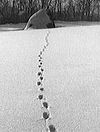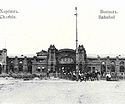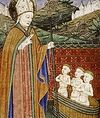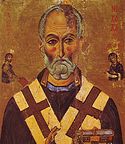

| Previous day | Next day |
| Old Style
May 9
|
Monday |
New Style
May 22
|
| 6th Week after Pascha. Tone 5. | No fast.
|
![]() Prophet Isaiah (8th c. b.c.).
Prophet Isaiah (8th c. b.c.). ![]() Martyr Christopher of Lycia, and with him Martyrs Callinica, Aquilina, and 200 soldiers (ca. 250).
Martyr Christopher of Lycia, and with him Martyrs Callinica, Aquilina, and 200 soldiers (ca. 250). ![]() St. Shio of Mgvime, monk, of Georgia (6th c.).
St. Shio of Mgvime, monk, of Georgia (6th c.). ![]() Translation of the relics of St. Nicholas the Wonderworker from Myra to Bari (1087). St. Joseph, elder, of Optina Monastery (1911).
Translation of the relics of St. Nicholas the Wonderworker from Myra to Bari (1087). St. Joseph, elder, of Optina Monastery (1911).
Translation of the relics of Child-martyr Gabriel of Slutsk (1775).
New Hieromartyr Dimitry Voskresensky, archpriest, of Anastasovo (Chuvashia) (1938).
Martyr Epimachus of Pelusium, at Alexandria (250). St. Maximus III, bishop of Jerusalem (ca. 350). Martyr Gordion, at Rome (362). Monk-martyr Nicholas of Vouneni in Thessaly (901).
Thoughts for Each Day of the Year
According to the Daily Church Readings from the Word of God
By St. Theophan the Recluse

Monday. [Acts 17:1–15; John 11:47–57]
What do we? for this man doeth many miracles (John 11:47). Jewish erudition found the Saviour to be guilty. And in our days, German erudition[1] finds what is supernatural to be out of place in the Gospels of Christ: everything is good, only this [the miraculous] just won’t work. These two ways of thinking meet in the final analysis. Jewish erudition decided: it is expedient that one man should die (John 11:50), and that the rest might not perish, while German erudition states: we will eliminate the supernatural to preserve all the other Gospel truths. And what came of this? The Jews destroyed their people, while the Germans lost all Christian truths, and now are left with almost nothing. The Lord is the cornerstone of the house of salvation; similarly faith in the supernatural is the cornerstone of the entire building of God-inspired truth. The Saviour Himself, in His Person, is the crown of the supernatural, and its inexhaustible Source is in the Church. He who touches this point is touching the apple of God’s eye.
[1] By “German erudition” St. Theophan is most likely referring to the Protestant German philosophers of his time.
Articles
 Prophet IsaiahThe Holy Prophet Isaiah lived 700 years before the birth of Christ, and was of royal lineage. |
 Martyr Christopher of LyciaThe Holy Martyr Christopher lived during the third century and suffered about the year 250, during the reign of the emperor Decius (249-251). |
 1500 years of Georgian Monasticism—St. Shio-Mgvime MonasteryAndrei GermanSt. Shio is among the Great 13 Assyrian Fathers, who came at the end of the fifth century from Antioch to preach Christ. |
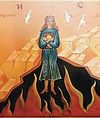 A Strange Miracle of St. Nicholas in 1956A true incident which shocked and brought repentance to hundreds of people in the Russian Soviet city of Kuibyshev (modern day Samara), in the year 1956. |
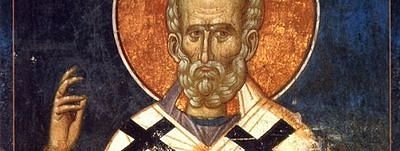 St. Nicholas |
 Venerable Joseph of OptinaSaint Joseph of Optina was born on November 2, 1837 in the village of Gorodishcha in the province of Kharkov. |




